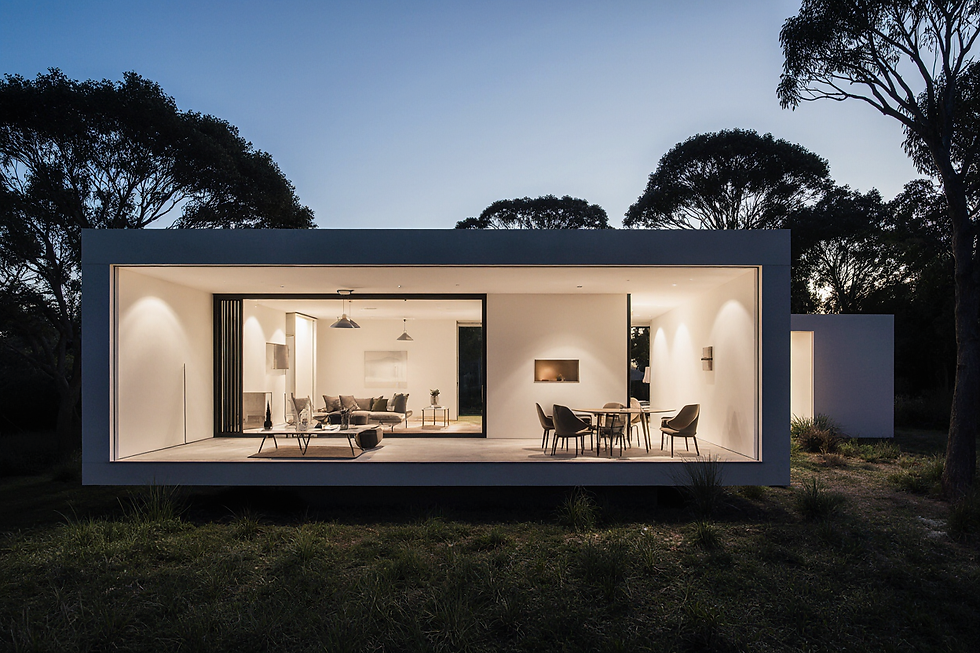To engage or not to engage - Finding A Reliable Builder
- Taylor Cortez

- Aug 9, 2025
- 3 min read
When embarking on a construction project, whether it’s building your dream home, renovating, or completing a commercial project, choosing the right builder is critical to ensuring success. A reliable builder not only delivers quality work but also provides you with peace of mind throughout the process. This article will explore how you can identify a dependable builder and ensure you achieve the outcome you envision.
Check Qualifications, Licenses, and Accreditations
A trustworthy builder will have the necessary qualifications, licenses, and accreditations required to operate in your region. These credentials serve as proof that they meet industry standards and comply with local building regulations.
What to Look For:
Proper licensing (varies by location, e.g., contractor license numbers).
Membership in professional organisations like the National Association of Home Builders (NAHB) or Master Builders Association (MBA).
Certifications for specialised work (e.g., green building, energy efficiency).

Tip: Verify these credentials with the issuing authorities to ensure their validity.
Review Their Portfolio and Experience
Experience speaks volumes about a builder's reliability. A seasoned professional will have a portfolio showcasing past projects, demonstrating their expertise across various types of construction.
Steps to Take:
Request a portfolio or visit their website to view completed projects.
Look for projects similar to yours in terms of scope, style, or complexity.
Ask about their experience with any unique features or materials you plan to include.
Check References and Testimonials
Word of mouth remains one of the most reliable ways to gauge a builder’s reputation. Speaking with past clients can provide insight into their work ethic, communication skills, and ability to meet deadlines.
Questions to Ask References:
Were you satisfied with the quality of the work?
Did the project stay on budget and on schedule?
How was the builder’s communication throughout the process?
Were there any unexpected challenges, and how were they handled?
Tip: Online reviews on platforms like Google, Yelp, or Houzz can also be valuable but should be cross-checked with personal references.

Assess Communication and Professionalism
A good builder will prioritise clear and open communication. From the initial consultation to project completion, they should be transparent about timelines, costs, and potential challenges.
Red Flags to Watch Out For:
Slow responses to emails or calls.
Vague answers to specific questions.
A lack of formal contracts or project documentation.
Tip: During your initial meetings, observe their approach to discussing your project. Are they actively listening and offering constructive input?
Understand Their Pricing and Contracts
While cost is an important factor, the cheapest option is rarely the best. A reliable builder will provide a detailed and transparent quote, breaking down costs for materials, labor, and other expenses.
What to Look For in a Contract:
A fixed or clearly explained pricing structure.
Clear timelines and milestones.
Specifics about warranties and guarantees.
Terms for handling changes or unforeseen issues.

Tip: Avoid builders who pressure you into signing a contract without giving you enough time to review it thoroughly.
Visit Current or Past Job Sites
Seeing a builder’s work in action can provide valuable insight into their efficiency, organization, and attention to detail. A well-managed site reflects professionalism and a commitment to quality.
What to Observe:
Cleanliness and organisation.
Proper safety measures in place.
The demeanor and professionalism of their team.
Look for Insurance and Warranty Coverage
A responsible builder will have sufficient insurance coverage to protect you and your property from potential liabilities. Additionally, they should offer warranties for their work, providing peace of mind in case issues arise after completion.
Key Coverages to Check For:
General liability insurance.
Workers' compensation insurance.
Warranty durations for materials and workmanship.
Trust Your Instincts
Sometimes, your gut feeling can be a powerful tool. If something feels off during your interactions with a builder, whether it’s vague communication, overly aggressive sales tactics, or a dismissive attitude, consider it a warning sign.
Ensuring a Great Outcome
Once you’ve chosen a reliable builder, here are a few additional steps to ensure your project runs smoothly:
Set Clear Expectations: Clearly define your goals, budget, and timelines from the outset.
Maintain Regular Communication: Schedule regular check-ins to discuss progress and address concerns.
Document Everything: Keep a written record of all agreements, changes, and correspondence.
Be Flexible: While it’s important to stick to your vision, being open to expert advice or necessary adjustments can lead to a better outcome.

Finding a reliable builder requires research, diligence, and good communication. By taking the time to vet potential builders, examine their work, and establish clear expectations, you can ensure a smooth construction process and a finished product that meets, or even exceeds your expectations.
Remember, the right builder isn’t just someone who can construct walls and roofs; they’re a partner in bringing your vision to life. Choose wisely, and the results will speak for themselves.



Comments